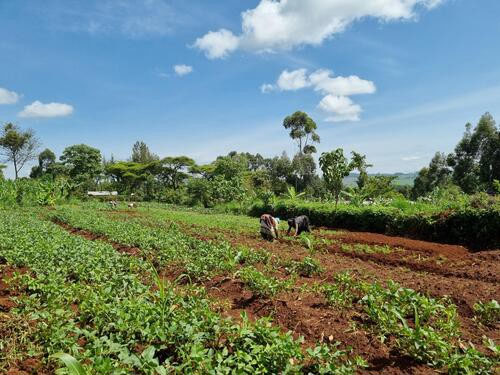Guest Blogger: Rebecca Brett
I studied Natural Hazard Management with International Development Studies (BSc) at the University of Chester from September 2017 to August 2020.

My time at the University of Chester
I studied Natural Hazard Management with International Development Studies (BSc) at the University of Chester from September 2017 to August 2020. I chose this course because it allowed me to bring together two areas of geography which I was really interested in; the big events like earthquakes and tsunamis, and the complex processes which intersect within international development. My dissertation allowed me to explore how the two can combine, as I researched the impact of the 2010 earthquake on Haiti’s healthcare system, and the progress Haiti had made in the 10 years following the event to rebuild it. Though it was hard work, this was definitely a highlight of my studies as I was able to talk to people who had experienced the earthquake, or who had helped the injured during the aftermath. I was also very lucky to travel to Naples and Geneva as part of my course, exploring the buried cities surrounding Mount Vesuvius, and visiting UN agencies to hear about their work across the globe.

Though my final year was cut short by COVID-19, I really enjoyed my time in the Geography and Environment. The staff were incredibly supportive, and I loved being taught in groups which were small enough that everyone knew each other and would work together on different projects. The mixture of lectures, fieldworks and focus groups also really helped me to develop a range of academic and applicable skills, though I can’t say that referencing got any easier!
After finishing my undergrad degree in 2020, I went on to study Intercultural Communication and Education (MA) at Durham University. I graduated from my Masters in December 2021, and have worked as a Monitoring Evaluation Accountability and Learning (MEAL) Officer for COCO for just over 1 year.
Advice for current and future students
If I had one piece of advice for current students, it would be to get involved with extra-curricular activities and opportunities during your studies. I actually did my second-year work-based learning placement with the organisation I now work for, and the volunteer experience I gained throughout my time at university helped me to show both my commitment to the charity sector, and to develop skills which I use every day in my current role. These opportunities could be within or beyond the University, but a great place to start is researching local organisations who are working in the field you are interested in.
The other piece of advice I would give is to reach out to people who can help you to find out what you want to do! I reached third year, and I still wasn't sure what I wanted to do or how to get there. The Careers and Employability team were amazing, so I would definitely suggest booking in a meeting to talk about what it is that you might want to do as a starting point. But I also began messaging people from the charity sector on LinkedIn to ask for advice. More often than not, they were more than willing to talk about their own experiences and what they had learnt from working in the sector so far, having been in the same situation themselves. And even if some people don't reply, you haven't lost anything - you just see if you can reach out to someone else!
My current role
I currently work for COCO, a UK-based charity with the mission of providing sustainable sources of quality education to children living in poor and marginalised communities. We believe that all children, regardless of race, gender, ethnicity or economic circumstance should have the opportunity to receive a quality education, and this guides our current work in Kenya and Tanzania through our Schools for Life, Sustainable Agriculture Training and Small Loans Programmes.
My role as COCO’s MEAL Officer means that I am in frequent contact with our overseas partners, helping them to monitor, evaluate, account for, and learn from the successes and challenges they are experiencing within their programmes. I then help the partners to take this information and convert it into reports for donors who have supported a project or programme, or write funding proposals for Trusts and Foundations in hopes that they will fund our partners’ future priorities. I have also given assemblies at schools which have partnered with some of our Schools for Life in Kenya, and met with some amazing organisations who have shared their knowledge with COCO to help us to best support our partners and their communities. But in July of last year, I got the opportunity to visit Kenya myself and see the programmes first hand. This was an incredible experience that I wish everyone could have as it taught me a lot about my job, but also the importance of community, and the potential for innovation through education and agriculture. Honestly, I could talk for hours about double digging planting beds and composting toilets, but that would be a whole blog of its own!
At the moment, I still feel as though I am figuring things out, and definitely experience imposter syndrome at least 3 times a week, but if anyone would like to have a chat about working in the charity sector, or would like to find out more about COCO and our partners in East Africa, please feel free to drop me an email at: rebecca@coco.org.uk